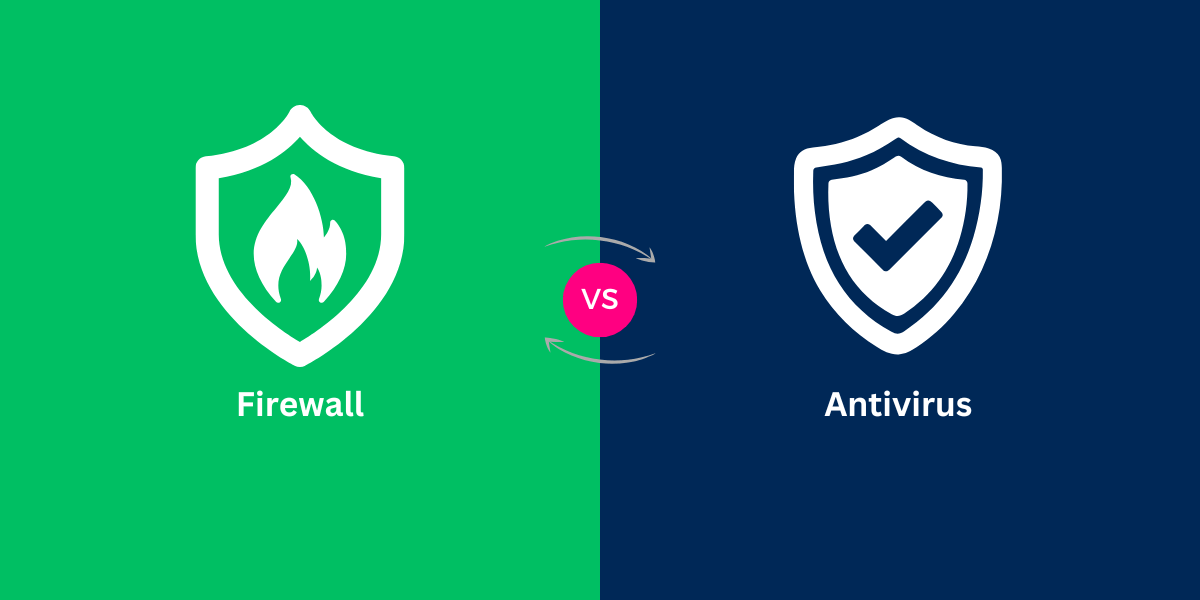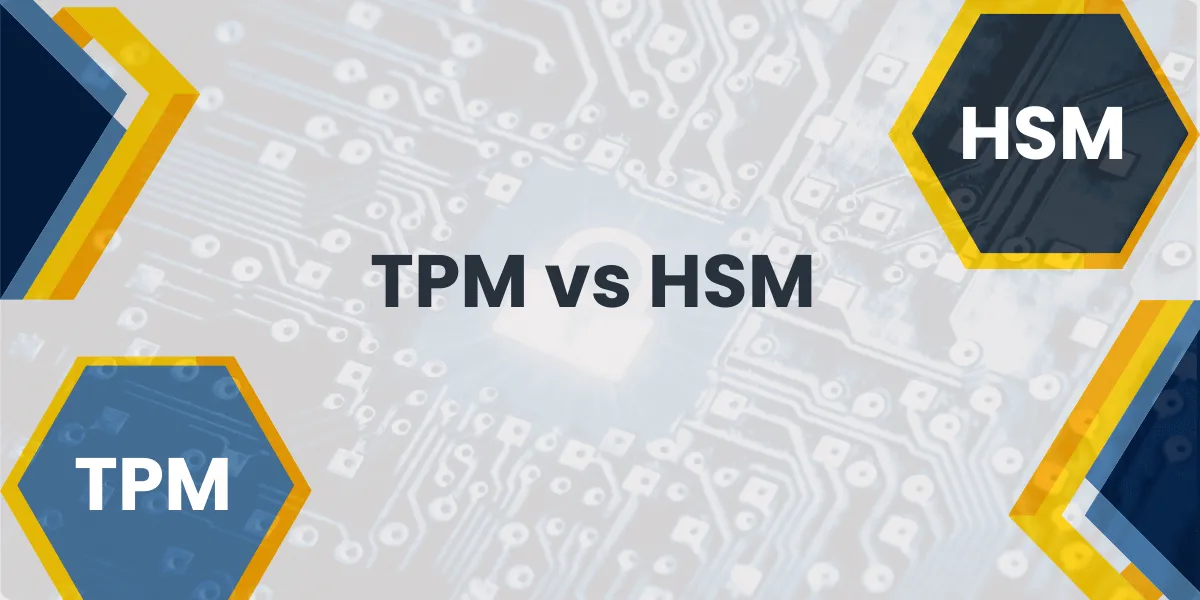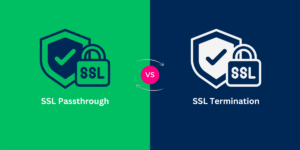Everything You Need to Know About Firewall and Antivirus
A firewall blocks unauthorized network access, while an antivirus detects and removes malware. For complete protection, yes—you need both. A firewall stops hackers from reaching your device, while antivirus cleans infections that slip through.
A firewall and antivirus serve different security functions for your computer. A firewall functions as a protective barrier which monitors all network traffic to prevent unauthorized access attempts. An antivirus program scans, detects, and removes malicious software like viruses, trojans, and malware from your device. You need both for complete protection.
The firewall prevents outside threats from entering your system, but antivirus software targets threats that are currently present on your device. The combination of both tools establishes an effective defense mechanism that safeguards your data and preserves your computer’s security.
What is a Firewall? Your Network’s First Line of Defense
The firewall functions as an electronic shield which protects your devices from the unsafe areas of the internet. The fundamental purpose of this network security system exists as either hardware or software-based technology which enforces security rules to control network traffic flow.
How Firewalls Actually Work
Modern firewalls operate through several key mechanisms:
- Packet Filtering: Examines data packets and blocks those that don’t meet security criteria
- Stateful Inspection: Tracks active connections and only allows traffic that’s part of legitimate sessions
- Proxy Service: Acts as an intermediary between your device and the internet
- Deep Packet Inspection: Analyzes the actual content of data packets for threats
Types of Firewalls
|
Type |
Description |
Best Use Case |
|
Hardware Firewalls |
Physical devices that protect entire networks |
Businesses, home networks with multiple devices |
|
Software Firewalls |
Programs installed on individual devices |
Personal computers, mobile devices |
|
Cloud Firewalls |
Hosted online and protect cloud infrastructure |
Cloud-based applications and services |
Key Benefits of Using a Firewall
- Your devices remain protected from unauthorized remote access.
- Malicious traffic gets blocked before it reaches your system.
- Network-based attacks such as ransomware can be stopped with the help of this tool.
- Can filter inappropriate or dangerous websites
Understanding Antivirus Software: Your Malware Protection
What Antivirus Software Actually Does
The main purpose of antivirus software is to detect and stop and eliminate malicious software (malware) that manages to get onto your device. Unlike firewalls that block threats at the network level, antivirus operates at the file and system level.
Modern Antivirus Detection Methods
Today’s antivirus solutions use multiple sophisticated techniques:
- Signature-Based Detection: Matches files against a database of known malware signatures
- Heuristic Analysis: Identifies new, unknown malware by analyzing suspicious behavior patterns
- Behavioral Monitoring: Watches programs for malicious actions in real-time
- Sandboxing: Runs suspicious files in isolated environments to observe behavior
- Machine Learning: Uses AI to identify emerging threats based on patterns
Limitations of Antivirus Protection
While essential, antivirus has some important limitations:
- Cannot prevent network-based attacks
- Relies on updates to recognize new threats
- May miss zero-day exploits before they’re identified
- Can impact system performance during scans
Firewall vs. Antivirus: Top 10 Key Differences
|
Firewall |
Antivirus |
Why It Matters |
|
|
Protection Layer |
Network-level (blocks external traffic) |
File/system-level (scans internal storage) |
Firewalls prevent attacks from reaching your device, while antivirus cleans what gets through. |
|
Primary Function |
Acts as a gatekeeper for network access |
Serves as malware detector/remover |
One blocks, the other destroys threats. |
|
Threat Prevention |
Proactive (stops threats before entry) |
Reactive (removes existing malware) |
You need both approaches for full security. |
|
Hardware vs. Software |
Can be hardware-based (routers) or software |
Always software-based |
Hardware firewalls protect entire networks. |
|
Zero-Day Threat Protection |
Blocks unknown threats via behavior analysis |
Relies on signature updates |
Firewalls often respond faster to new attack methods. |
|
Performance Impact |
Minimal resource usage |
Can slow systems during scans |
Firewalls run lighter in the background. |
|
Common Vulnerabilities |
Weak against malware in allowed traffic |
Weak against network-based attacks |
Each has blind spots the other covers. |
|
Configuration Complexity |
Requires manual rule setup |
Mostly automated after installation |
Firewalls demand more technical knowledge. |
|
Protection Scope |
Defends all devices on a network |
Only protects the installed device |
Firewalls secure smart home devices antivirus can’t. |
|
Cost Structure |
Often free in OS/router |
Premium versions needed for full features |
Antivirus subscriptions are more common. |
Why You Absolutely Need Both for Complete Protection
The Layered Security Approach
The defense in depth strategy which modern cybersecurity experts recommend involves implementing multiple layers of protection. The use of a single security measure exposes your system to potential threats.
Scenario 1: Only Using a Firewall
- Blocks network attacks effectively
- Can’t detect malware delivered via USB drives
- Won’t stop malicious email attachments that you open
Scenario 2: Only Using Antivirus
- Can clean infected files
- Won’t prevent hackers from accessing your network
- Can’t stop zero-day exploits before they reach your device
Real-World Examples Where Both Were Needed
WannaCry Ransomware Attack (2017)
- The initial network propagation could be blocked by firewalls yet antivirus software was required to eliminate infected systems.
Phishing Email Attacks
- Firewalls lack the capability to intercept incoming malicious emails.
- The antivirus system detects and isolates harmful email attachments.
Implementing Both Solutions Effectively
For Home Users
- The built-in Windows Defender Firewall or macOS Application Firewall should be enabled by users.
- A trustworthy antivirus solution should be installed (Bitdefender, Norton, or Kaspersky recommended)
- Both systems should receive automatic updates to achieve maximum protection.
For Business Environments
- Businesses should implement Enterprise-Grade Firewalls through Cisco ASA and Fortinet and Palo Alto Networks.
- The implementation of Endpoint Protection should include Sophos Intercept X or CrowdStrike Falcon.
- The implementation of Managed Security Services provides 24/7 monitoring capabilities.
Final Thoughts
Firewalls and antivirus software protect different aspects of cybersecurity but both are necessary for complete protection. Firewalls function as digital gatekeepers to prevent unauthorized network access and antivirus software performs file scanning to detect and eliminate malicious files. Experts advise using both firewalls and antivirus software together because of the current threat environment.
Home users need to activate their built-in firewalls and select reliable antivirus software while businesses require more sophisticated security solutions. No security tool exists that can defend against every possible threat. Protect yourself from an error occurred while processing your request. Please try again.
Frequently Asked Questions (FAQs) about Firewall vs. Antivirus
What is better firewall or antivirus?
The firewall system protects your network by blocking unauthorized access while monitoring all network traffic. The primary function of antivirus software is to detect and eliminate malware that affects your devices. These security tools operate with separate functions to protect your system. Users require both security tools to achieve full protection against cyber threats.
Can I use Windows Defender without a firewall?
The Windows Defender system operates without a firewall yet it fails to deliver complete protection. The firewall adds essential network security. Microsoft advises users to activate both Windows Defender and the firewall for maximum security protection.
Is Windows firewall good enough?
The Windows firewall system offers standard network defense capabilities suitable for home users. The built-in firewall system protects users from typical threats and blocks unauthorized network entry attempts. Business organizations require specialized third-party firewalls beyond the standard features.
Does a firewall protect against viruses?
Firewalls do not directly protect against viruses. The firewall system protects networks by blocking suspicious connections and blocking unauthorized access attempts. The main function of antivirus software involves detecting and eliminating viruses from devices.
What happens if you don’t have antivirus?
A computer system without antivirus software becomes vulnerable to severe malware attacks. Hackers can steal personal data and damage system files. Users experience performance slowdowns together with data loss and their personal identity becomes vulnerable to theft.
Do I need both firewall and antivirus if I have a VPN?
The encryption capabilities of VPNs protect An error occurred while processing your request. Please try again.

Priya Mervana
 Verified Web Security Experts
Verified Web Security Experts
Priya Mervana is working at SSLInsights.com as a web security expert with over 10 years of experience writing about encryption, SSL certificates, and online privacy. She aims to make complex security topics easily understandable for everyday internet users.



